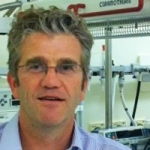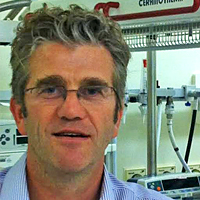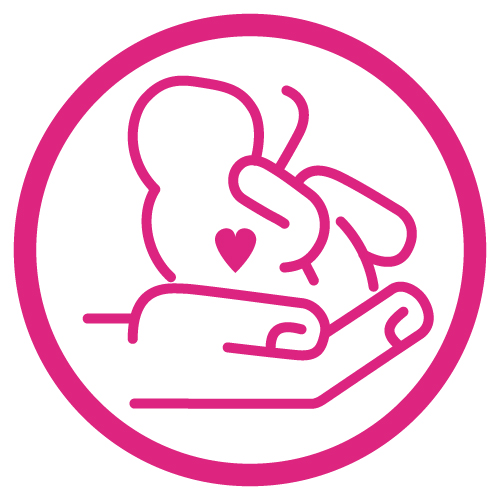 NICU Nutrition & Feeding Online Course(s) & Continuing Education
NICU Nutrition & Feeding Online Course(s) & Continuing Education
Access the latest clinical skills and research for NICU Nutrition & Feeding for NEONATOLOGY professional training. These NICU Nutrition & Feeding online courses provide practice-changing skills and valuable perspectives from leading global experts. This NICU Nutrition & Feeding education has been accredited for a variety of CEUs / CERPs and can be accessed on-demand, at your own pace.


Consultant neonatal pediatrician with special interest in neonatal nutrition, probiotics, gut-brain-microbiota axis and long-term neurodevelopment. Dr Jape leads the high-risk neonatal follow-up program for her tertiary referral institute. Currently the chair for the Perinatal Society of Australia and New Zealand long-term outcomes sub-committee. Dr Jape is Clinical Associate Professor at the School of Medicine, University of Western Australia. Dr Jape is reviewer for national and international medical journals.
Topic: Critical Congenital Heart Disease: A Guide to Screening & Management - [View Abstract]
Topic: Gut-Microbiota-Brain Axis in Neonates and Infants - [View Abstract]
Infants admitted to neonatal intensive care units (very preterm and extremely preterm, term infants with HIE, term infants with surgical gut conditions) are at high-risk of suboptimal nutrition. They are at increased risk of poor growth and neurodevelopment in subsequent life. Improved enteral nutrition has been associated with better weight gain and improved neurocognitive outcomes in infancy , childhood and adolescence. This presentation aims to assess advances in enteral nutrition strategies across the different high-risk infant groups to highlight new research and optimize clinical care.


M. Petrea Cober, PharmD, BCNSP, BCPPS, attended the University of Tennessee, College of Pharmacy in Memphis, Tennessee. She completed her PGY1 Pharmacy Residency at Penn State Milton S. Hershey Medical Center in Hershey, Pennsylvania, and her PGY2 Pharmacy Residency in Pediatrics at the University of Michigan Hospitals and Health System in Ann Arbor, Michigan. She is currently the Clinical Coordinator - Neonatal Intensive Care Unit and PGY1 Residency Program Director at Akron Children's Hospital where she provides clinical services and precepts pharmacy students, PGY1 pharmacy residents, and PGY3 medical pediatric residents. She is also the Section Lead for Specialty Care and an Associate Professor in the Department of Pharmacy Practice at Northeast Ohio Medical University (NEOMED). Her didactic teaching is in the areas of pediatrics, women’s health, and nutrition. Dr. Cober's expertise is in pediatric pharmacotherapy, nutrition, ethanol lock therapy, and management of patients with intestinal failure. She is active in local, state, and national pharmacy organizations.
Critically ill neonates and infants are often unable to maintain adequate nutrition through the enteral route and require parenteral nutrition. Due to their increased nutritional needs, small size, and limited overall fluid intake, neonatal/infant parenteral nutrition requires specialized knowledge of stability and compatibility of parenteral nutrition macronutrients and micronutrients. Special attention will be given to issues involving protein requirements, glucose infuse rates, provision of lipid injectable emulsions utilizing newer products, calcium and phosphate compatibility, and challenges with limited intravenous access.

View Details / Enroll

Early Breastmilk Exposure and Later Cardiovascular Health in Premature Infants

Prof EL-Khuffash is a Consultant Neonatologist and Paediatrician. He is a qualified International Board Certified Lactation Consultant. His two primary clinical and research areas of expertise are heart function in neonates and the promotion of breast feeding, and breast feeding support, to new mothers. He also has extensive expertise in general feeding issues encountered by babies over the first few months.
Prof EL-Khuffash sees families for prenatal breast feeding and fetal anomaly consultations and postnatal infant assessment, 2 and 6 week checks, and breastfeeding/general support including early irritability and reflux in his consultation rooms in the Rotunda Private Clinic.
Prof EL-Khuffash has considerable knowledge of breast feeding medicine and experience in providing antenatal and postnatal breast feeding advice and support to new mothers. This includes identifying and addressing challenges to breastfeeding in both the mother and the baby. He also specialises in general feeding difficulties and early feeding issues encountered by babies.
Prof EL-Khuffash graduated from Trinity College, Dublin in 2002 and enrolled in the Royal College of Physicians of Ireland paediatric specialist training scheme in 2005. He completed a Doctor of Medicine (MD) degree in University College, Dublin in 2008 and his neonatal specialty training in Toronto, Canada (2009-2011). Following this, he was appointed as a consultant Neonatologist and Assistant Professor of Paediatrics at the University of Toronto in January of 2011. He obtained a diploma in clinical epidemiology during his time in Toronto. He is the recipient of several national and international research awards, with international peer reviewed publications and keynote presentations and the lead for cardiovascular research, supervising several post graduate PhD candidates.
Topic: Mother's Own Milk Versus Donor Human Milk in the NICU: Practical Recommendations for Individualized Care - [View Abstract]
Premature infants have impaired cardiovascular function that persists into adulthood. Preterm infants exhibit impaired systolic and diastolic dysfunction that is intolerant of the adverse loading conditions experienced during the early neonatal period. Young adults born premature demonstrate a unique cardiac phenotype characterized by reduced biventricular volume, relatively lower systolic and diastolic function, and a disproportionate increase in muscle mass. This may clinically manifest by an increased risk of cardiovascular incidents, hypertension, and reduced exercise tolerance. Those consequences appear to result from early postnatal cardiac remodelling due to premature birth and associated comorbidities. Recent evidence suggests that early exposure to breast milk slows down or even arrests those pathophysiological changes, thereby mitigating the long-term adverse effects of premature birth on cardiovascular health. In this presentation, I aim to demonstrate the vital role of early breast milk exposure in preventing cardiovascular disease in preterm infants. We will explore the emerging evidence and examine the possible mechanistic pathways mediating this phenomenon.

View Details / Enroll

Evaluation of Assessment Strategies to Reduce Risk Associated With Feeding Intolerance

Dr. Brigit Carter, Associate Professor and Associate Dean for Diversity and Inclusion, joined the Duke University School of Nursing (DUSON) in 2010. From 2015-2018 she served as the Director of the DUSON Accelerated Bachelor of Science in Nursing (ABSN) program. Dr. Carter earned her BSN at North Carolina Central University in 1998, a Master of Science in Nursing Education from University of North Carolina at Greensboro in 2002 and PhD in Nursing from University of North Carolina at Chapel Hill in 2009. She served as project director for two HRSA Nursing Workforce Diversity grants. The current grant, The Academy for Academic and Social Enrichment and Leadership Development for Health Equity II, focus is to increase underrepresented minorities in nursing and understanding of individual social determinants among undergraduate nursing students. Dr. Carter teaches the DNP and ABSN programs.
Dr. Carter's clinical research focuses on nursing care of premature infants (<1500 grams) with feeding intolerance and identification of measurable methods for early detection of feeding intolerance. She continues her clinical practice as a staff nurse in the Duke University Hospital Intensive Care Nursery, where she has 21 years’ experience.
Dr. Carter retired in 1/2018 from the U.S. Navy as a Commander after 28 years of service.
Current methods used to identify feeding intolerance signs/symptoms in preterm infants rely heavily on nurses’ physical assessment and reporting of symptoms to the health care provider (HCP). Feeding intolerance, for the purposes of this discussion, is defined as “experiencing difficulty with the ingestion or digestion of formula or breast milk that causes a disruption in the current enteral feeding plan due to the manifestation of one or more of defined clinical symptoms including gastric residuals (>50% of feeding volume), abdominal distention, appearance of the abdomen (changes in color or suppleness), emesis and changes in the stool (minimal or lack of)” (Carter, 2012). It is critical to evaluate these assessment strategies to determine how reliable they are in identifying progression to feeding intolerance and more serious conditions such as necrotizing enterocolitis. Because the guidelines often vary by institutions, this can often be disadvantageous. However, the literature does provide some very consistent support and agreement on what is considered more reliable non-radiology measures that indicate a preterm infant is progressing to feeding intolerance. In addition, there are well known triggers for feeding intolerance that should be considered. There are also future methods, such as intra-abdominal pressure monitoring, that may be on the horizon for predicting feeding intolerance in preterm infants that are presently used in pediatric and adult populations.

View Details / Enroll


Mari is currently a clinical academic working at Evelina London Children's Hospital in the UK. She is a Clinical Specialist Speech Language Therapist with various international peer reviewed articles on neonatal feeding assessment building on the body of research presented in her PhD. She has presented at various international conferences in the USA, Africa and Europe. Her experience entails paediatric dysphagia in the acute setting with specialization in critical care and neonatal care. In her previous position as an associate professor at a university in South Africa she invested in student clinician training in the NICU setting and access to evidence based treatment for feeding disorders in infancy. Her current research interest is in mobile health application development for the Neonatal Feeding Assessment Scale for international access to a validated neonatal feeding assessment tool to identify oropharyngeal dysphagia in neonates and young infants. In addition her second tier research path is looking at the role of the speech language therapist in PICU. To support the wider clinical and scientific community she is a member of the European Society for Swallowing Disorders as well as an international affiliate member of the Royal College of Speech Language Therapists.
A dearth of validated neonatal feeding assessment instruments are available in an era where medical teams are challenged to demonstrate the evidence base of the services that are provided to neonates. The Neonatal Feeding Assessment Scale (NFAS) was developed to identify oropharyngeal dysphagia with identification of subsequent airway invasion during feeding in neonates. This presentation will take the delegates on a journey through the landscape of evidence, the research process for developing the NFAS and how the NFAS can be used in everyday practice in the NICU to support better feeding outcomes for neonates within their family context.

View Details / Enroll

Feeding Preterm Babies after Hospital Discharge: Breast-milk, Fortifier, Supplements and Complementary Foods

Dr Embleton has worked in neonatal medicine for the past 25 years, completing clinical training and a research doctorate in neonatal nutrition in the UK, and a neonatal fellowship in Vancouver, Canada. He has worked as a Consultant Neonatal Pediatrician in Newcastle, UK since 2002, one of the largest UK neonatal units, caring for sick preterm and term born neonates. He leads a broad portfolio of research focused on nutrition and gut health in preterm infants. Areas of work include determining patterns of early gut microbial colonization, and how these may predict the development of necrotizing enterocolitis (NEC) and sepsis. He is a project team member of large neonatal feeding trials recruiting >5000 infants in the UK, as well as coordinating mechanistic studies using microbiomic and metabolomic analyses. He chairs the multi-disciplinary UK Neonatal Nutrition Network (N3) and is a member of the Committee of Nutrition for ESPGHAN.
Topic: Probiotics in Preterm Infants - [View Abstract]
Survival in preterm infants has increased over the last few years, and this has been accompanied by an increasing focus on the importance of nutrition and the effects of preterm birth on later outcomes. Providing nutrition to sick preterm infants in the NICU is complex, and almost all preterm infants are discharged with growth outcomes (weight and length) considerably below their birth centiles. This is important because data show an association between poorer growth and nutritional status in the NICU, and worse longterm neurodevelopmental outcomes. Whilst greater efforts are required to improve nutritional status prior to discharge, the post-discharge setting represents a time period when brain growth is also rapid, and where the potential exists to improve outcome through nutritional interventions. However, the potential benefits of improved brain outcomes need to be considered alongside the possibility of metablic harm induced by excessively rapid growth which may increase risks of obesity and later chronic disease. This talk will consider the continued importance of breast milk after discharge, the potential role of fortifiers and supplements in meeting nutrient requirements, and issues around the timing of introduction of complementary foods.

View Details / Enroll

View Details / Enroll


Dr. Narvey began his training in Pediatrics at the University of Manitoba in Winnipeg where he completed a year of further training in Neonatology. This was followed by two years of Neonatal fellowship at the University of Alberta in Edmonton. Afterwards he began his career as a Neonatologist in the same city and over the 6 years he spent there, his career included both clinical and administrative duties including 4 years as the Fellowship Program Director and two years as the Medical Director for a level II unit. In late 2010 he accepted a position in Winnipeg to become the Section Head of Neonatology and continues to hold this post. In 2016 he took on the additional role of Medical Director of the Child Health Transport Team. In 2015 he became a member of the Canadian Pediatric Society’s Fetus and Newborn Committee and in 2019 took over as Chair of the same. His interests predominantly lie in the use of non-invasive technology to minimize painful procedures during an infants stay in the NICU. He is active on social media and has a passion for fundraising and is an active board member of the Children’s Hospital Foundation of Manitoba.
Topic: Human Milk Diet and Fortification: Controversies and Evidence - [View Abstract]
Topic: Many Different Shades of Yellow - [View Abstract]
Topic: Respiratory Problems in the Newborn: Where Are We in 2022? - [View Abstract]
Topic: Sweet and Sour: Hypoglycemia in the Newborn - [View Abstract]
Research supporting the use of exclusive human milk diets will be reviewed. From there we will look at the evidence for improving both short and long term outcomes and then determine what other options exist and where we might be headed in neonatal nutrition.

View Details / Enroll


In her employed life Wendy was a community pharmacist and also worked in doctor surgeries supporting cost effective, evidence-based prescribing.
Wendy left paid work to concentrate on writing Breastfeeding and Medication (Routledge 2nd edition 2018), developing information and training material on drugs in breastmilk as well as setting up her own website www.breastfeeding-and-medication. She has also published Breastfeeding for Dads and Grandmas (Praeclarus Press) and Why Mothers Medication Matters (Pinter and Martin). She is also co editor of a book to be published January 2020 called A guide to breastfeeding for medical professionals (Routledge).
Wendy is known for her work on providing a service on the compatibility of drugs in breastmilk and has been a breastfeeding peer supporter for 30 years. She is passionate that breastfeeding should be valued by all and that medication should not be a barrier. She has 3 daughters and 5 grandchildren. All her family seem as passionate about breastfeeding as she is and currently all 3 of her daughters are breastfeeding.
She was awarded a Points of Light award by the Prime Minister in 2018 and nominated for an MBE in the New Year's Honours List 2018 for services to mothers and babies. She received her award at Windsor Castle in May 2019 from Her Majesty the Queen.
Topic: Medication and Breastmilk in the NICU - [View Abstract]
Topic: Pharmacokinetics and Clinical Implications of Drugs in Human Milk: The Substance-Exposed Infant - [View Abstract]
For optimal health, a baby born pre-term should be enabled to breastfeed as soon as possible or to receive expressed breastmilk from their birth mother. Where this isn't an option, donor breastmilk can be used. Breastfeeding a pre term or otherwise vulnerable baby in NICU is challenging, and where medications are involved there may be additional barriers. The baby may need medication to treat its own medical needs, the birth mother may also need medication and it is important to consider the risks of these passing through breastmilk. If the baby is to receive donor breastmilk then it is essential that the donor is not taking anything that might impact on the health of the recipient baby. In this presentation some of the barriers will be discussed along with discussion on how these may be overcome using the limited evidence base available.


After 37 years as an attending neonatologist and 18 years as medical director of lactation services, Nancy retired from clinical practice 2019. She graduated from medical school and did her training in pediatrics at the University of North Carolina, Chapel Hill. She did her fellowships in Neonatal-Perinatal Medicine and ECMO at UCSD Medical Center in San Diego. She has been a board-certified lactation consultant since 1988.
Nancy co-founded the San Diego County Breastfeeding Coalition in 1994. She was the Breastfeeding Coordinator for AAP CA Chapter 3 from 1992 until 2020, Board Member of HMBANA 2015-2019 and established the first Donor Milk Depot in San Diego over 25 years ago. Nancy is a past president of the Academy of Breastfeeding Medicine. She wrote, and continues to update, the very first ABM Protocol on Hypoglycemia and Breastfeeding.
In 2014 Nancy was awarded the Golden Wave Award by the California Breastfeeding Coalition for her efforts to reduce obstacles to breastfeeding in California, and the WIC Breastfeeding Champion Award in 2017. She received AAP Special Achievement Awards in 1997 and 2021 for her breastfeeding education and promotion efforts.
On a personal note, she is the mother of a (formerly breastfed) archaeology student and lives in San Diego, CA, with her significant other, their dog, Darwin, and a beautiful view of the ocean.
Topic: NICU Nutrition: Best Practice for Best Outcomes - [View Abstract]
Topic: NICU Nutrition: Current Status, Opportunities & Challenges - [View Abstract]
In the neonatal period, low birth weight, preterm, and ill infants, regardless of gestational age, have greater nutritional needs than at any other time in their lives. Without the last trimester, the preterm infant faces the most demanding growth period with a nutritional deficit. For any NICU infant, the stress of medical conditions may contribute to increased nutrient needs. Human milk is a complex fluid that simultaneously provides nutrients and bioactive components that facilitate the adaptive, functional changes required for the optimal transition from intrauterine to extrauterine life. We will discuss the goals and methods of providing appropriate nutrition for NICU infants to promote optimal short- and long-term outcomes.

View Details / Enroll

Optimizing Growth and Body Composition in Preterm Infants: Approaches to Neonatal Nutritional Care in Clinical Practice

Dr Mark Johnson is a consultant neonatologist at University Hospital Southampton NHS Foundation Trust and an honorary senior clinical lecturer in neonatal medicine at the University of Southampton. He is also currently the clinical director for neonatal medicine in Southampton. Dr Johnson graduated in medicine (BM) from the University of Southampton in 2004, and undertook an intercalated degree in biomedical science during his medical training. Dr Johnson was awarded a prestigious NIHR doctoral research fellowship to fund his PhD, which he was awarded by the University of Southampton in 2015. Dr Johnson’s PhD focused on change management in neonatal care in the context of nutrition, successfully implementing improved nutritional practices in order to improve the growth of preterm infants. Dr Johnson's research centres around the nutritional care and growth of premature babies, and the implementation of practice change in order to improve care, and has published on these topics widely, including systematic reviews looking at the use of early parenteral nutrition in preterm infants, the impact of enhanced nutrition on the neurodevelopmental outcomes of preterm infants and the effect of preterm birth on body composition and growth. He has also contributed to national and international guidance on nutritional care.
Current recommendations for the growth of preterm infants are that they should try and achieve the same pattern of growth they would they were still in-utero. This growth should be both the right quantity, but also the right quality in terms of body composition and the relative proportions of fat and lean tissue. This requires higher amounts of nutrition that can be difficult to deliver, meaning that preterm infants are at risk of poor growth and body composition that favours fat accretion over lean mass. This is important, as nutrition, growth and body composition in early life are associated with neurodevelopmental outcomes and longer-term cardiovascular risk. However, the exact pattern of growth that results in optimal short- and long-term outcomes in these infants is not well defined. This talk will explore current patterns of growth, the evidence for the pattern of growth for optimal clinical outcomes, and what can be achieved in clinical practice. It will then go on to consider different strategies for nutritional care and how these can be implemented in clinical practice for preterm infants in the neonatal unit to achieve optimal growth.

View Details / Enroll














